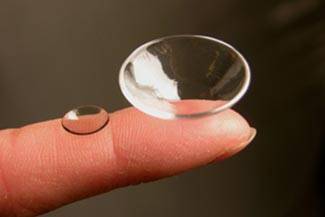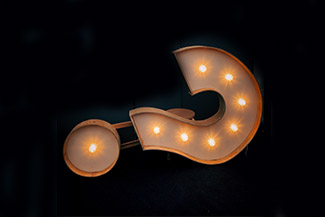
Scleral Lenses for Giant Papillary Conjunctivitis (GPC)
Giant Papillary Conjunctivitis (GPC) is an inflammatory reaction that occurs on the eyelids when proteins are secreted in your tears. These proteins then form a filmy coating on contact lenses that not only makes wearing them uncomfortable but also irritates the eyelids, causing an inflammatory reaction.
In the initial phase of the condition, the inside of your eyelid may become red, itchy, swollen and irritated, but as time goes on, bumps (also called papillae) will develop, occasionally growing to the size of a pimple. GPC can thus make wearing contact lenses irritating and uncomfortable.
Fortunately, GPC isn’t permanent. Wearing scleral lenses not only reduces GPC’s effects but, unlike other lenses, can prevent a recurrence. If you suspect that you have GPC or are simply interested in seeing whether scleral lenses are right for you, speak with Dr. Thomas R. Doud today.
What Causes GPC?
- Wearing certain types of contact lenses heightens the risk of developing GPC
- Protein deposits or other substances on the contact lenses
- A contact lens, artificial eye, or exposed stitches that rub against the lower eyelid
- An allergic reaction to either contact lenses or their cleaning products
- Asthma, hay fever, or other allergies coupled with the use of contact lenses
Can People With GPC Wear Contact Lenses?
Yes. However, those with GPC have more difficulty finding a contact lens that doesn’t further exacerbate the irritation.
Gas permeable (GP) lenses, such as scleral lenses, are highly recommended since proteins don’t accumulate on GP lenses the way they do on soft lenses. This ensures that gas permeable lenses remain cleaner and are therefore less likely to cause an inflammatory reaction.
Another alternative is daily disposable lenses, as they are discarded after a single day of wear. This prevents protein deposits from accumulating on the lenses.
Monthly soft lenses tend to retain protein deposits over time, no matter how well they’re cleaned on a daily basis.
Scleral Lenses for GPC
Due to their large size, scleral lenses are more stable on the eye than conventional GP lenses, and are therefore less likely to dislodge from the eye. Moreover, all scleral lenses are customized and made with highly breathable gas permeable material so that plenty of oxygen reaches the front of the eyeball. The reservoir of pure saline solution between the back surface of the lens and the front of the cornea ensures that the eye is always in a moist environment. It’s no surprise that scleral lenses consistently rank at the top of the charts when it comes to providing sharp visual acuity, comfort and healthy eyes.
Why Do Scleral Lenses Help Prevent GPC?
The customization of scleral lenses is one of the key factors in preventing GPC. Because the lens is properly fitted to the specific eye, and the vault over the cornea is filled with artificial tears, it prevents debris from entering while soothing GPC symptoms simultaneously. Furthermore, those who have highly sensitive eyes and are prone to experiencing allergic reactions can benefit from wearing scleral lenses, as they protect both the tear film layer and are easier to clean than other GP lenses.
Speak with Dr. Thomas R. Doud to learn how to care for your lenses and avoid developing GPC. If you’re susceptible to getting GPC, make sure to schedule follow-up visits with Dr. Thomas R. Doud.
Can GPC Develop in Scleral Lens Wearers?
Although the chances are much lower than in conventional contact lenses, giant papillary conjunctivitis may at times develop with scleral lenses due to potential lens surface debris buildup. For those with allergies, it is ideal to use a peroxide cleaning solution as it provides in-depth disinfection.
Make sure to regularly visit Dr. Thomas R. Doud to have your cornea monitored in order to prevent GPC from worsening or recurring.
Our practice serves patients from Hartland, Highland, Howell, and Linden, Michigan and surrounding communities.










